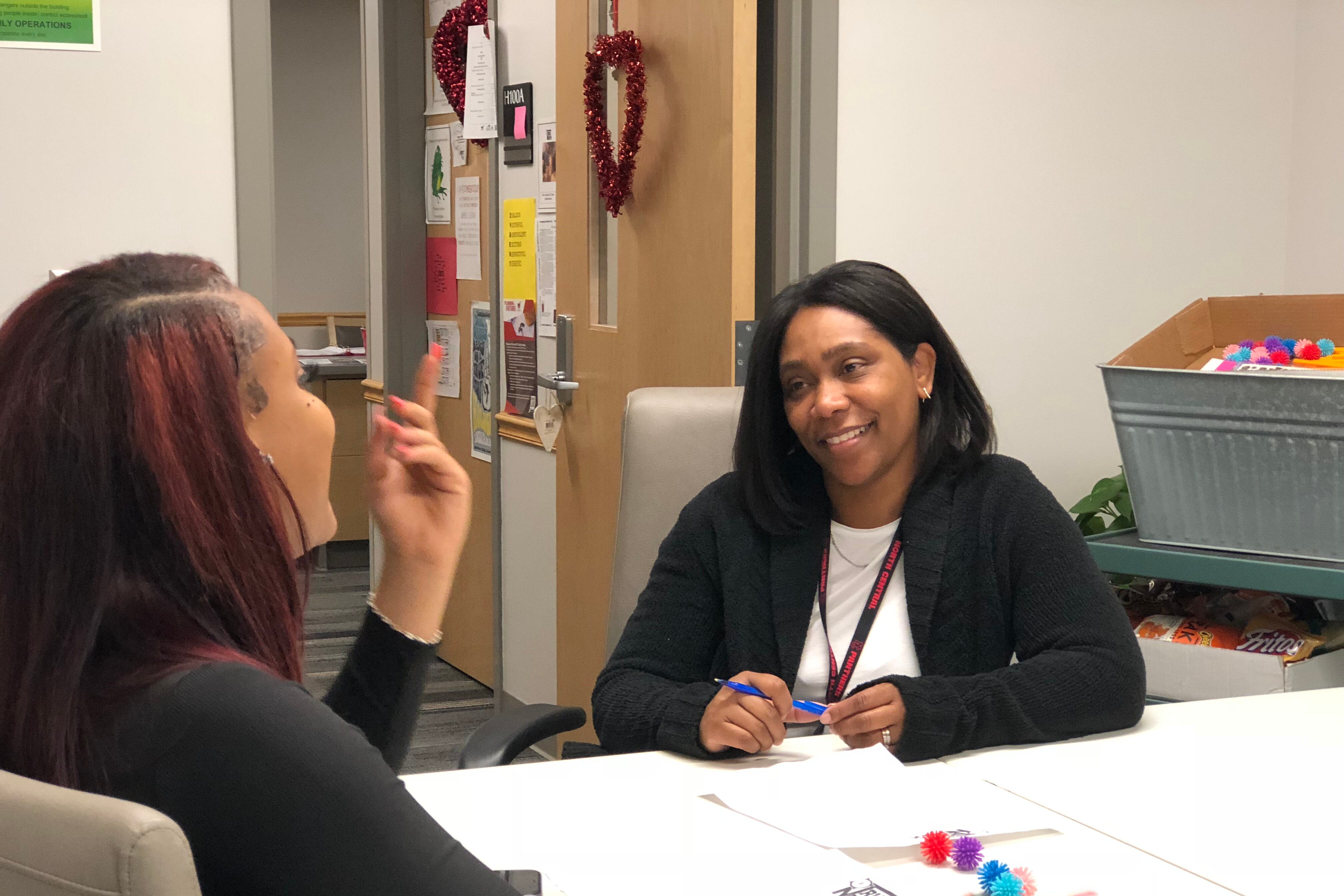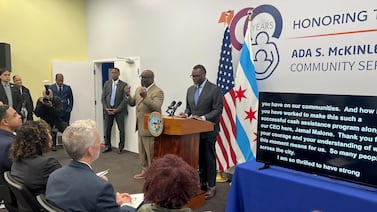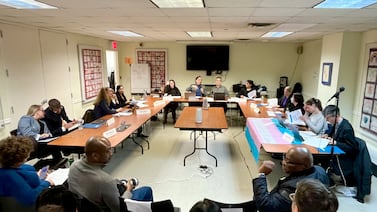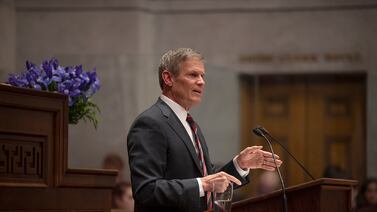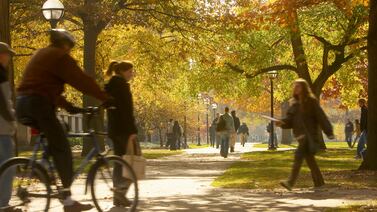Before the coronavirus outbreak, Indianapolis school social worker Crystal Haslett kept a Google Doc to track her interactions with students and the reasons for their referrals.
Now, she’s using that tracking system to keep tabs on the needs of students as their families deal with the effects of the health crisis. She documents when teachers can’t get in touch with students, when students don’t have a device or internet access at home, or when families need basic supplies such as food, soap, or toilet paper.
“In my 20 years of experience, I’ve not seen anything like this,” Haslett, who counsels students at North Central High School in Washington Township, told Chalkbeat.
Haslett, who also works with district students who are homeless or in foster care, was named Indiana’s School Social Worker of the Year for 2019. She spoke recently with Chalkbeat about the importance of self-care for educators, a bright spot amid the pandemic for students experiencing homelessness, and the value of listening.
This interview has been lightly edited for clarity and length.
Has there been anything in your career up to this point that prepared you for a situation like this?
In my 20 years of experience, I’ve not seen anything like this. I’ve been reminded, pretty much daily, that self-care is incredibly important during a crisis. If, as a school social worker, helping professional and educator, you were not practicing self-care prior to this public health crisis, I believe you’ve learned that it’s not just lip-service. It’s a reminder that it’s important to develop our skills professionally for sure, but that practicing self-care during “normal” times allows you as a professional to rely on those skills during crisis so that you are able to put your oxygen mask on before you put the mask on others.
Are there any silver linings to the transition to distance learning?
While the transition to distance learning has presented its challenges, one thing that has created is an easier way for young people who are transient to complete school work. For example, a young person who is couch surfing only needs the device they are using for school and internet access to complete schoolwork. That young person does not need to worry about providing school with an address right now or being sure to get to the bus stop on time, because that is their only way to get to school, comply with attendance requirements, and learn. This is a sliver of a silver lining for this very specific population and is also dependent on them having a device and access to the internet.
You spend lots of time working with students. Knowing what you know, what advice would you give to parents?
It is my core belief that as parents we are all doing the very best that we can do every day. I would simply tell parents to hold on to that belief as well. It is so easy to judge yourself as a parent. Notice when you’ve made a mistake, apologize to your child, and move through the experience. Young people will learn so much more from our honesty and humanity.
Tell us about a time when you managed to connect with a student facing challenges.
Some of my most rewarding and challenging work is with young people who are experiencing homelessness and find themselves in high school and on their own. I think very highly of these young people. I have had the honor of working with a few over the years. Some have made it through to graduating from high school, and some have not.
I had a young man come to tell me he was going to have to leave school because he was working more and more hours at his job and just too tired to come to school and keep up with the work and expectations. He was responsible for taking care of himself, so working was non-negotiable.
While I wished his circumstances were different, I knew this was his truth, and I supported him in his decision. I think the important part of connecting with students is allowing them to authentically be themselves.
Tell us about a memorable time — good or bad — when contact with a student’s family changed your perspective or approach.
I have heard from parents, “You are the only one who has listened today.” People want to be listened to and acknowledged for their experience, even when others do not agree. I try to remain cognizant of the times I’m not being a good listener, in order to make adjustments. I want parents and students to leave our interactions feeling heard.
I remember being called on that by a parent in my earlier years: Did I really hear what she was trying to tell me what her concerns were? She felt like she wasn’t really heard, and I had to own that. She was absolutely right.
I’ve learned to focus on the student or parent I’m with — to not be trying to think what my response is going to be or what the solution is going to be, but to actually be right there with them and create a safe space for a student or a parent to share.
I’ve learned to be a good listener, and then be honest and direct. We have some really, really hard conversations with students and parents about poor hygiene or excessive absences, all the way to suicidal thoughts, potential removal of a child from their home, or the death of a parent or sibling. And sometimes we’re having that conversation with them, and they’ve just met us.


